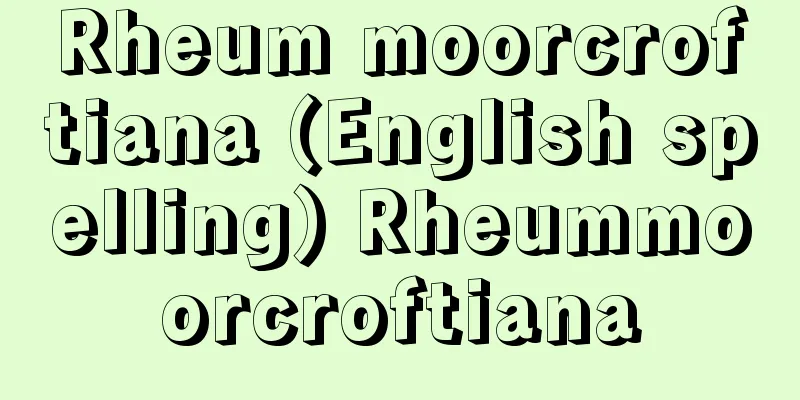Referendum; plebiscite

|
A referendum is a direct vote by the general public on issues other than elections for legislators and other public officials, as an expression of national sovereignty. It is a form in which the public directly participates in decisions on national will, and is held when deciding territorial ownership, deciding on leaders, and deciding important national policies. In addition, local referendums under Japan's Special Law on Local Autonomy are also a type of popular vote, and are widely called referendums. In special cases, such as territorial ownership and deciding on leaders, they are sometimes called plebiscites to distinguish them from each other, but there is no strict distinction between the two. Although it is also called a national referendum, it can also refer to people who cannot be defined as "citizens," so the term plebiscite is more precise. Plebiscite, as used in international law, is mainly used in cases where territory is transferred, and since the transfer means that the residents of the area in question will in principle belong to a different country from before, the plebiscite is used to respect the will of the residents. However, it cannot be said that a popular vote is a general requirement for the transfer of territory. This tendency has existed since the French Revolution. Since World War II, many referendums have been held to determine the independence of non-self-governing territories and to determine the status of territorial sovereignty. Examples of referendums provided for in the Constitution of Japan include national referendums on constitutional amendments (Article 96), local referendums on special laws that apply only to one local government (Article 95), and popular referendums on Supreme Court judges (Article 79). Source: Encyclopaedia Britannica Concise Encyclopedia About Encyclopaedia Britannica Concise Encyclopedia Information |
|
国民主権の表われとして,国民一般が,議員その他公務員の選挙以外の課題について直接行う投票。いわば国民が国家意思の決定に直接参加する一形式であり,領土の帰属の決定,指導者の決定,重要な国家政策の決定などに際して行われるほか,日本の地方自治特別法における住民投票も一種の人民投票であり,広くレファレンダム referendumと呼ばれる。特に領土の帰属,指導者の決定など特殊な場合には plebisciteと呼んで区別することもあるが,両者に巌密な区別があるわけではない。国民投票ともいうが,「国民」と規定できない人たちの場合もいうので,巌密には人民投票の用語が望ましい。国際法上用いられる plebisciteは,おもに領土の譲渡が行われる場合を対象としていわれ,譲渡によって当該地域の住民は,原則的にいままでと異なる国家に属することとなるため,人民投票によって住民の意思を尊重しようとするものである。しかし,人民投票が領土の譲渡にあたっての一般的要件になっているとまではいえない。このような傾向はフランス革命以来のことである。第2次世界大戦後は,非自治地域などの独立,領土の帰属決定に際して人民投票が多く行われている。日本国憲法の採用する人民投票の例としては,憲法改正に関する国民投票 (96条) ,1つの地方公共団体にのみ適用される特別法に関する住民投票 (95条) ,最高裁判所裁判官の国民審査 (79条) がある。
出典 ブリタニカ国際大百科事典 小項目事典ブリタニカ国際大百科事典 小項目事典について 情報 |
<<: Contradictions within the People
>>: People's China (English spelling)
Recommend
Ishimukade (English spelling) long-legged centipede
A general term for arthropods belonging to the ord...
Shuowen Jiezi - Shuowen Jiezi
A dictionary from the Later Han Dynasty in China....
Huqin (English spelling)
The name of a stringed instrument used in China an...
Kangansuore - Kangansuore
...On Chuseok, various places hold competitions s...
Kujo Yoritsune
The fourth Shogun of the Kamakura Shogunate. The ...
Ionization series
When a metal is immersed in an aqueous solution, ...
Extremely violent - Bogire (English spelling)
An official title in the early Jin Dynasty in Chin...
Huang-Minlon (English spelling)
…Generally, the hydrazone is first isolated from ...
Mount Kobushigatake
Also known as Mt. Kobushin. A mountain in the Chi...
Crab cactus (English name) Schlumbergera russelliana
A perennial plant of the Cactaceae family. Native ...
Avencebrol
…Jewish poet and philosopher, born in Malaga, And...
Odosigaeru - Scary frog
...The eye patterns on the back of the thorax of ...
Genpaku Sugita - Sugita Genpaku
A doctor and scholar of Western medicine in the m...
Defamation - Meiyo Kison
It is an act that violates the reputation (honor)...
Safe deposit box - Kashikinko
A system in which financial institutions lend saf...


![Cameroon [Mountain] - Cameroon](/upload/images/67cb401a8ae1f.webp)






